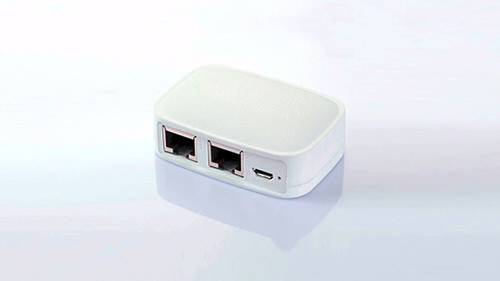
What if anonymizing your Internet use was as easy as plugging in a router?
One group of privacy-focused developers is working to make that happen. Their $45 Anonabox is an open-source router that aims to make it simple to reroute all your Internet traffic through an anonymous network, making it much harder for anyone to track you who or where you are from your Internet activity. The project has already surpassed its Kickstarter goal by $250,000 with nearly a month to go.
Anonabox uses Tor, an open source privacy solution that encrypts messages through multiple network nodes. Once plugged in, it automatically encrypts all user data through Tor. The box is small enough to fit in a wallet and can be used as a buffer between your laptop and any wired Internet connection to skirt censorship and avoid prying eyes.
See also: Building A Raspberry Pi VPN Part One: How And Why To Build A Server
Demand for the Anonabox shows the gap in the market for a simplified solution to Internet privacy. I’ve previously written a tutorial for building a virtual private network that will let you browse anonymously for free, but it took me dozens of steps to explain. Meanwhile, Adafruit’s Onion Pi also uses Tor, but costs twice what Anonabox does and still needs to be built as a kit.
Of course, Anonabox’s reliability depends on whether Tor’s software is as anonymizing as it appears. Since 2013, some experts have suspected that the NSA can de-anonymize Tor users. This summer, researchers canceled a talk at the Black Hat security conference in which they were slated to explain how the average person can cheaply do the same.
See also: Researchers Won’t Reveal How To Break Tor’s Anonymous Web Browsing
If Anonabox does fulfill its security promises, it could be the smallest, cheapest, and simplest solution for online anonymnity to date. As August Germar, a security consultant on the project told Wired, it could have far reaching implications for people in countries where Internet access is censored, limited, or strongly policed.
“It was important to us that it be portable and small—something you can easily conceal or even throw away if you have to get rid of it,” he said.
Update 2:30 Eastern Time: After critics on Reddit questioned the “custom” nature of the Anonabox hardware, Germar clarified to Wired that the router was sourced from a Chinese supplier’s stock board, not an original design.
Photo via Anonabox

















